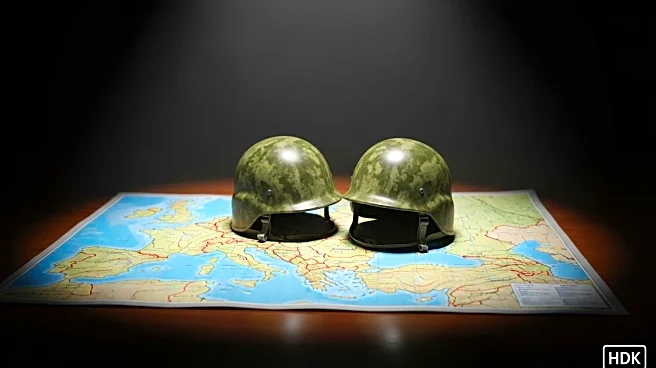What's Happening?
Russia's chief of staff, General Valery Gerasimov, has reported that Russian forces are advancing in multiple regions of Ukraine, including Donetsk, Zaporizhzhia, and Dnipropetrovsk. Despite these claims, Ukrainian President Volodymyr Zelensky has stated that Russia's previous three offensives have failed and warned of two more planned large-scale campaigns. The Russian military has struggled to secure significant territorial gains, with advances limited to less than 1% of Ukrainian territory since November 2022. Zelensky attributes Russian setbacks to high casualties and equipment losses.
Why It's Important?
The ongoing conflict in Ukraine continues to impact regional stability and international relations. Russia's inability to achieve significant territorial gains despite extensive military efforts highlights the resilience of Ukrainian forces and the challenges faced by Moscow. The potential for new offensives raises concerns about further escalation and humanitarian impacts. The situation affects global political dynamics, with implications for NATO and European security policies. Stakeholders, including governments and international organizations, are closely monitoring developments to assess potential shifts in the conflict.
What's Next?
As Russia prepares for additional offensives, international attention will focus on the response from Ukraine and its allies. The potential for increased military activity may lead to further diplomatic efforts to resolve the conflict. The situation could prompt additional support for Ukraine from Western nations, including military aid and strategic assistance. The international community may also increase pressure on Russia through sanctions and diplomatic channels to deter further aggression.










